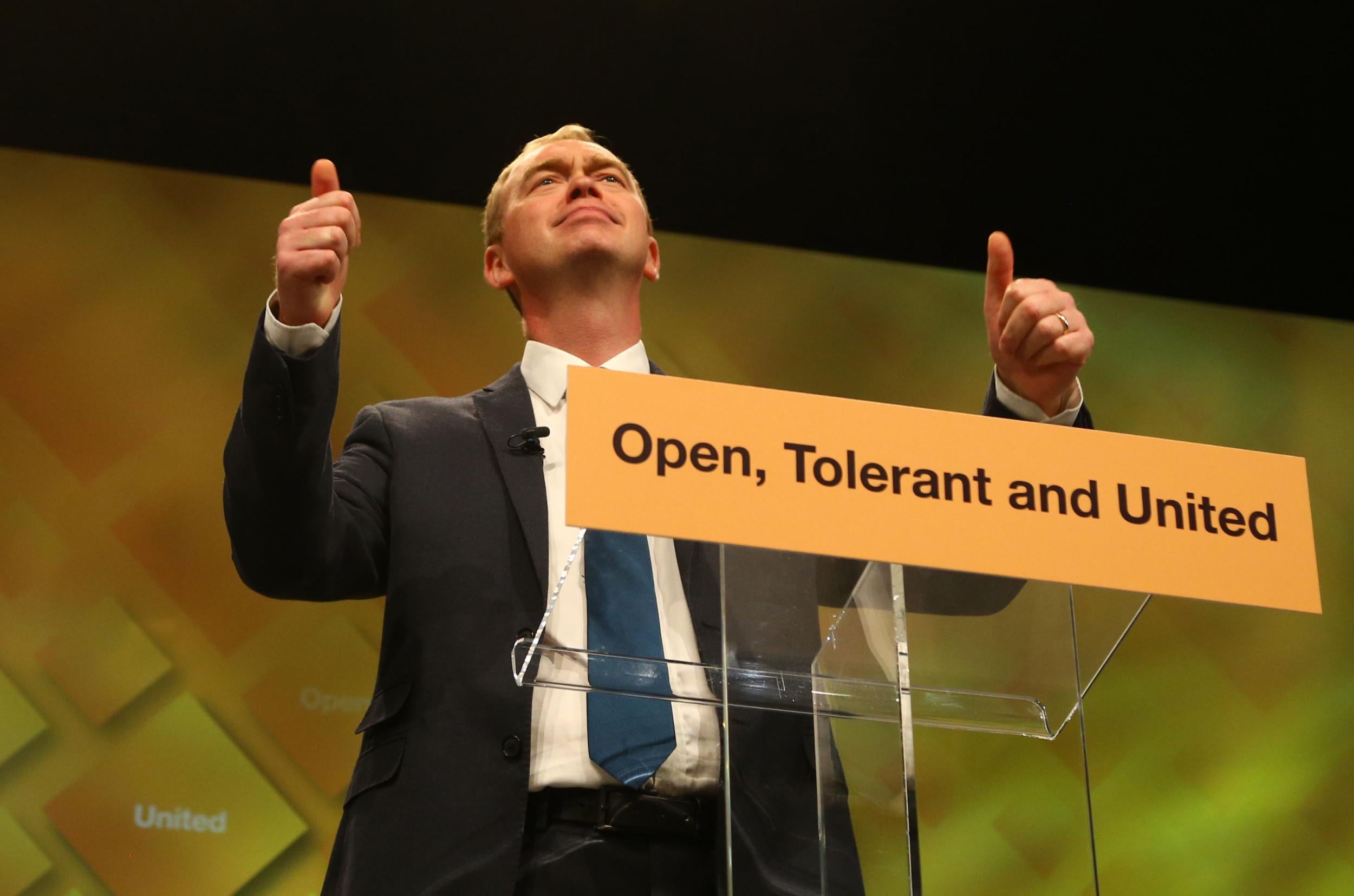The British public don’t need a new centre ground party to fight a Tory hard Brexit – they already have one
Many moderate Conservative and Labour MPs acknowledge to me in private that the Liberal Democrats are much, much nearer to their outlook than their current political home


The action is set against a backdrop of a right wing, divisive Conservative government with an extremist, economically illiterate Labour opposition. No, this is not 2017, but 1981, and it is a recently opened play about the Limehouse Declaration, which led to Labour MPs forming the SDP in alliance with the Liberal Party. This later became the Liberal Democrats.
Not just in theatreland, but in Parliament, there is much chatter about the apparent need for a new centre party. Anna Soubry, Conservative MP, responded positively to the idea. Meanwhile, her colleague Nicky Morgan apparently declined to confirm that she would stand under Conservative colours in 2020.
But this need for a “centre party” has, as I hope you will appreciate, surprised me. Cough, cough, from the Lib Dem corner: I think you will find there already is a centre party. It is called the Liberal Democrats, and it is in rude health, almost doubling its membership since the general election, winning more than 30 council by-elections up and down the country since the referendum along with our famous parliamentary victory in Richmond Park.
More than this, we are now acknowledged by the media – and increasingly by the public, if improving polls are any guide – as the real opposition to the hard Brexit Conservative Government, as we fight to stay in the single market and to give the people a say on the final deal.
Why form a new party when a vibrant, growing party with an army of skilled councillors and activists is already out there campaigning to keep Britain open, tolerant and united?
Many moderate Conservative and Labour MPs acknowledge to me in private that the Liberal Democrats are much, much nearer to their outlook than their current political home. Ken Clarke surely has way more common ground with me than he does with Theresa May. The Conservative Party is now so right wing that even figures like George Osborne must agree more with us on big issues such as how vital it is to stay in the single market than he does with Liam Fox and Boris Johnson.
As with Labour: can Liz Kendall and Yvette Cooper say hand on heart they agree more with Jeremy Corbyn than with me? Yvette has worked with me to let in 3,000 unaccompanied child refugees from Europe, while Liz has joined the campaign of my colleague Norman Lamb to guarantee the NHS the long-term funding it desperately needs. They must see the shared values.
At the last election that centre ground was a crowded place. Personally, I thought the Liberal Democrats had a unique position, being the party of opportunity, having delivered the pupil premium, free school dinners and free early years learning. There was, nevertheless, an argument that the last election was fought between three centre parties in broad agreement.
Even if that was the case then, it is not now. But for the Liberal Democrats, the centre ground would be an abandoned wasteland. The Tories and Labour are now both so anti-business that they almost vie to offer the most economically destructive policy: both support a hard Brexit that would divorce Britain from the world’s most lucrative single market. You can’t have a hard Brexit and a successful economy, and without a functioning economy you can’t invest in schools or hospitals.
Quietly, many Conservative and Labour MPs agree with us on this. My regret is that more have not joined Liberal Democrats in the lobbies to vote against this divisive hard Brexit. Indeed, Labour actually voted for Brexit.
But just as the European referendum of 1975 ultimately led to the Limehouse Declaration and the formation of the Alliance, so in the years ahead Brexit will drive a sledgehammer through the two-party system.
If there is a difference this time, it seems that it is liberals in the Conservative Party who are currently a little closer to making a stand. Moderate Labour MPs are more inclined to give up and quit Parliament.
My hope is that the many liberals in both the Conservative and Labour parties rediscover their mojo and join the Liberal Democrats. Why waste time creating what is already there when we need to get on with the fight against this disastrous hard Brexit?
But, ultimately, if MPs want to set up other groupings, I will talk to them. The liberal values of this country are under threat more than at any time since the war. From the right they are denounced by nationalists, from the left by crypto-Marxists. Hard Brexit is the enemy of liberalism, and any liberal who wants to fight it should pick up the phone to me. This is the greatest cause of our lifetime, and the clock is ticking. That, my friends, is the new Liberal Democrat declaration.
Tim Farron is the leader of the Liberal Democrats


Join our commenting forum
Join thought-provoking conversations, follow other Independent readers and see their replies